"For whom do I open my eyes every morning?" Suzy Stork, who spends her mornings living a mechanical life for her children, suddenly starts questioning her life. With vacant eyes, Suzy Stork delivers this line, encapsulating the overarching theme of the play, resonating with the audience's emotions. Set against the historical backdrop of past French eras, this play portrays the story of a woman, a human, that many people can relate to even today. From the forced maternal love imposed on women to parental child abuse, spousal rape, and parental burnout, it highlights the society's violent everyday occurrences that were often left unquestioned. This is achieved through the realistic performances of the actors. The contemporary tragedy <Suzy Stork> delivers a powerful punch to the audience, using the ordinary life of a woman to make them contemplate on fundamental desires of an individual.
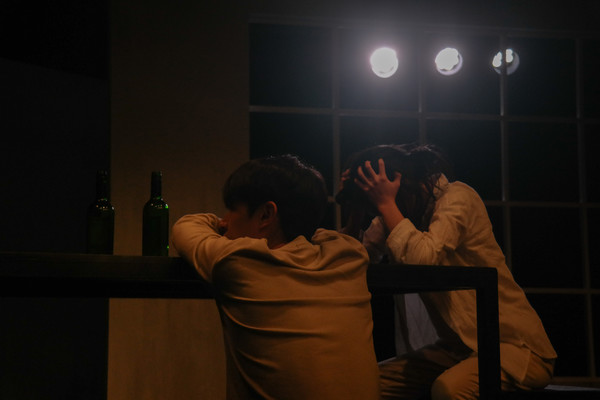
Characters
Madam Stork (Lee So-ri): Suzy Stork’s mother. A coercive figure who compels Suzy to follow in her example.
Suzy Stork (Lee Eun-jeong): The protagonist who suffers from the traditional female image and repressed social norms given to her.
Hans Vassili Kreuz (Nam Hyuk-jun): A contradictory figure who envisions only the idealized image of a submissive Suzy Stork as his wife and his children’s mother, while dreaming of the perfect home.
Chorus (Park Ku-min, Han Jong-hun): They guide the overall flow of the play. Serving as a conduit for the protagonists' dialogue and inner thoughts, while providing explanations about the play, enhancing audience immersion.
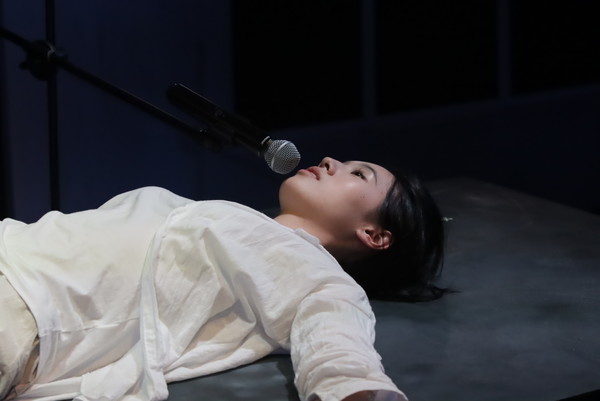
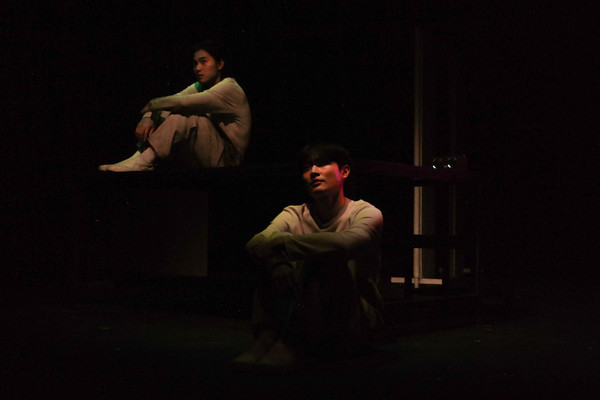
Synopsis
The play begins with the story of Suzy Stork, a woman who has never once refused the life prescribed to her. She has always accepted the flow of circumstances, leading her to work in a factory and naturally marry Hans Vassili Kreuz. Without much thought, she succumbs to societal pressures. Despite her lack of inclination, she become pregnant at her husband's behest and subsequently devotes herself to homemaking and childcare after giving birth to three children. One summer day, amidst her submissive mindset, a new thought comes to Suzy Stork's mind. She realizes a desire to be respected as an individual, wanting more than the violent societal norms that have defined her existence. Breaking away from always saying "Yes," she utters her first "No." This pivotal moment marks the beginning of a precarious yet intriguing journey in the play.
The Donkey Means One Thing and the Driver Another
The play "Suzy Stork" dissects the oppressive societal structures surrounding modern women in detail. It delves into the realities of women married within patriarchal systems, burdened disproportionately with societal expectations and duties related to childbirth, childcare, and housework, all while not receiving due recognition for their contributions. Furthermore, the play touches on the reality of married men, who shoulder heavy responsibilities as patriarchs, often sacrificing a lot to conform to their roles set by societal norms. Though these two individuals come together to form a household, their ideals of an ideal life completely differ. Without understanding the weight of each other's lives, Vassili imposes the image of a submissive wife on Suzy. By showcasing Suzy’s increasing despair in response to her husband’s behaviors, the play raises questions for the audience about the desirable ways of understanding each other.
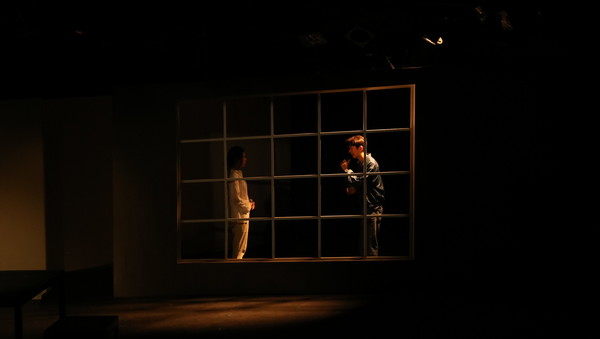
Unheard Voices
This play revolves around Suzy Stork's life, making her the protagonist in the play. Interestingly however, the play doesn't start with her voice, which makes the audience question. Suzy continues to open her mouth but her lines were filled by the voices of the chorus holding microphones. Her inability to convey her own voices to someone is portrayed almost like a bird trapped in a cage, communicating her frustration to the audience. In this play, the 'microphone' is a central prop, utilized to intensify the focus on the dialogue by incorporating various sound effects. Each character, through the prop of the microphone, continuously addresses the audience from their own perspectives, prompting the audience to make judgments.
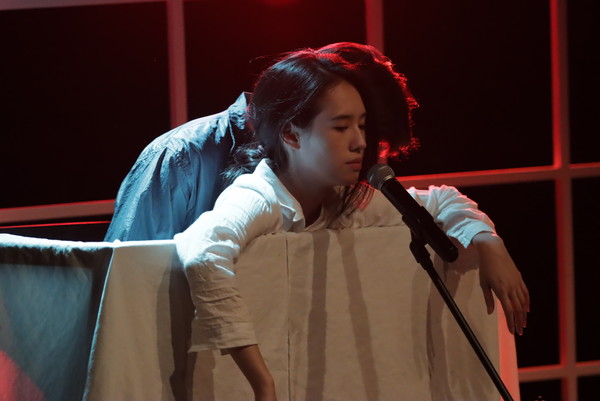
Elements of Viewing
Writer Introduction
This play is directed based on the original work "Suzy Stork" by French playwright Marguerite Mougel. Acclaimed as a promising young female playwright in France, Marguerite was born in 1982 in the Alsace region of France. She majored in philosophy at the University of Strasbourg and then graduated from the playwriting department of École Nationale Supérieure des Arts et Techniques du Théâtre (ENSATT), a renowned theater school in Lyon, in 2008. Her works are primarily centered around three themes: women, nature, and politics. Her notable piece, "Suzy Stork," also focuses on the oppressive societal structures surrounding modern women. It raises questions about the conventional beliefs that bring unhappiness to both men and women, spotlighting the problematic aspects of such social norms.
Design Concept
This play, as a whole, unfolds against a backdrop of darkness and melancholy. So the lighting is directed to intensify the somber and empty atmosphere of the play. The direction aims to amplify the gloomy and futile ambiance. The fragments from the past that Suzy recalls throughout the play symbolize the sadness of her life and the process of losing herself. As these lighting effects gradually and slowly deteriorate, they further accentuate the image of her crumbling state. Also following the twelve-sequence arrangement of the play, the stage's space has been designed to resemble a unified environment. Employing a direction akin to the ticking of a clock with the passage of time, each sequence presents diverse structures to the audience.
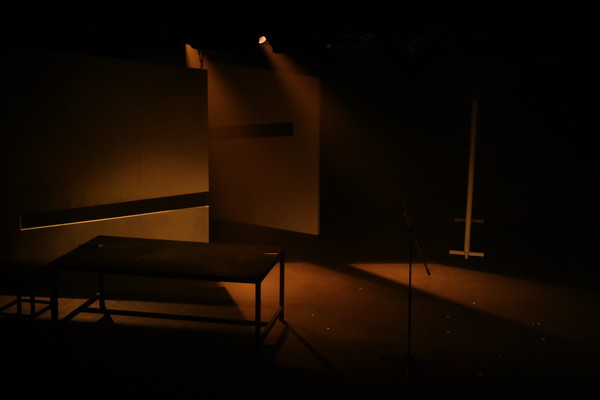
In the play "Suzy Stork," the protagonist's portrayal embodies a glimpse of our neighbors, as well as a character reminiscent of someone we might have seen in the news. The play vividly exposes themes such as family violence, marital obligations of women, societal expectations of motherhood for women, and the social system, all through irony and satire. After viewing this play, you will likely have a profound moment of introspection about the life you truly desire, providing you with valuable contemplation.
Place: Institute of Performing Arts, Chung-Ang University Since 1959
Time: 2023.08.25 ~ 2023.08.27

